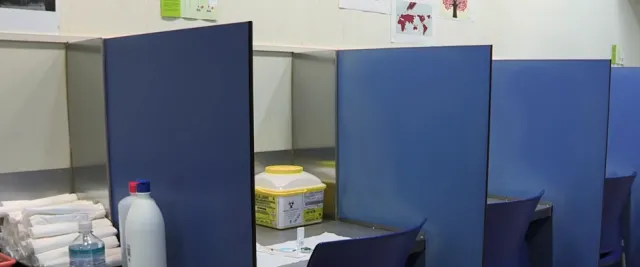The expansion of contactless drug dealing, the increase in the use of licit drugs and the adaptation of drug treatment protocols during lockdown are among the findings highlighted today in a new EMCDDA report: Impact of COVID-19 on drug markets, drug use, drug-related harms and responses in east European Neighbourhood Policy countries.
This is the first publication released in the framework of the EMCDDA EU4Monitoring Drugs project, funded by the EU and launched in 2019. The project paves the way for the agency to cooperate and exchange data more readily with the European Neighbourhood Policy (ENP) partner countries (1).
Today’s report presents the key results of an EMCDDA trendspotter study, prepared in consultation with some 30 experts from all six eastern ENP countries (2). A summary of the report in English is available in Azerbaijani, Armenian, Belarussian, Georgian, Ukrainian and Romanian.
The report highlights the following changes in the early stages of the COVID-19 pandemic across the eastern European Neighbourhood Policy (ENP) region:
- Drug markets — Signs of supply chain disruption were seen in a reduction in the volume and number of seizures at borders and in increases in retail-level prices for certain types of drugs in some countries. At retail level, contactless drug dealing activities prevailed, prompted by national restrictions on movement, heightened public order measures and strategies to restrict person-to-person contact. Law-enforcement activities were also affected, with fewer drug law offences reported, reflecting a shift in policing priorities towards ensuring public safety.
- Drug use and drug-related harms — Sources suggest that the availability of most illicit substances smuggled into the region (e.g. heroin, MDMA, amphetamines, cocaine) decreased, which is thought to have led to a reduction in their use. In some contexts, this appears to have resulted in greater use of licit substitutes (e.g. alcohol, pharmaceuticals), frequently in combination with illicit drugs. Cannabis use appears to be the least affected.
- Drug services — Drug-related services, in some countries, reduced their offer in the early lockdown period, restricting access for new clients. At the same time, in most of the six countries, drug services and NGOs adapted their policies and protocols to ensure the uninterrupted provision of treatment services (e.g. offering take-home OST, online consultations and mobile services for needle and syringe exchange).
The report concludes that, in the coming months, national authorities may need to consider how to maintain innovative approaches adapted for service provision. They will also need to ensure that practitioners and law-enforcement officers are adequately equipped and skilled to work in the environment where online communication and digital tools may start to dominate.


















